Badminton
Origin: The Chinese played the game shuttle-kicking in the fifth century B.C., and ancient Greeks developed a variation more than 2,000 years ago. By the 1600s, “battledore and shuttlecock” was a popular children’s game, and in the mid-nineteenth century, British officers stationed in India added a net, thus inventing a game that looked a lot like modern badminton. Badminton 5.0 was launched in 1873 at Badminton House in Gloucestershire, England, the country estate of the Duke of Beaufort.
Olympic sport: Yes. Debuted in 1992 as a full-medal sport.
Why they play: “Badminton is very energy-intensive and can really train a player’s reflexes. You can’t win by just hitting the shuttle as hard as you can.” Eddie Lau (SMG’11)
Record for speed of shuttle: 206 mph
What good is it? “Roger Federer played badminton when he was a child. People always say Federer has really good footwork. That’s because he played badminton. Any advanced badminton players will tell you that footwork is probably the most important part of badminton.” Eddie Lau





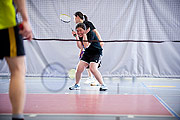


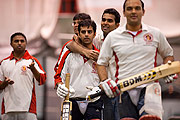




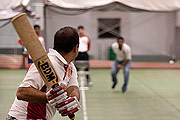

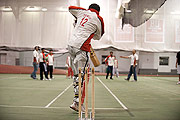





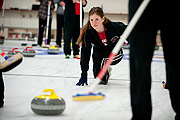
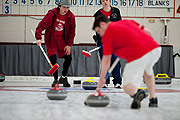







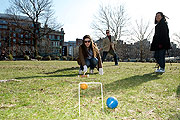









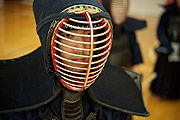




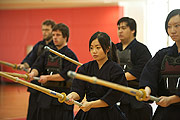















 Twitter
Twitter Facebook
Facebook
Comments
On 11 June 2012 at 2:40 PM, Scott Nalette wrote:
Great article Bostonia... though we certainly want everyone to know that this only scratches the surface of Club Sports available on campus. Check out our list of the FitRec website! www.bu.edu/fitrec/club/sports.
On 10 February 2012 at 1:47 PM, Sean Matlis (CAS) wrote:
What about the Triathlon team? We're sending 13 to Nationals and we're the funnest team around! And you don't have to be any skill level to join. Hidden gem.
On 10 September 2011 at 8:32 PM, LG (SAR'12) wrote:
Would love to try Kendo! But I am so intimidated about being a novice and embarrassing myself. Great article!
On 11 August 2011 at 7:50 AM, Amy wrote:
Great Photos, I really liked the fencing and kendo ones since I've done both. Really Great Photography.
On 7 July 2011 at 2:53 PM, Amanda (COM'13) wrote:
What about Ultimate?
On 21 September 2010 at 1:39 AM, Poker Spielen (CGS) wrote:
excellent points and the details are more precise than somewhere else, thanks.
On 14 September 2010 at 12:48 PM, Chip Auscavitch (GSM'09) wrote:
Men's and Women's Rugby are great sports to be a part of. As someone that's played/coached for 13 years, I strongly recommend it to those that are looking to stay in shape/get in shape, and play a competitive team sport that truly requires all players to work together and support each other. It's a great alternative to football for men, and an opportunity to play a contact sport for women. Both men's and women's teams at BU have seen a lot of recent success.
On 7 September 2010 at 1:39 PM, gary capehart (SED'71) wrote:
I received a nice email from Mr. Lynch the Athletic Director this summer. He explained to me as he saw it why BU will never have a football team again. I thanked him for his time and respectable tone. As we know the demise of football in 97 was on a short list of goals by faculty present since 1971. Yet people like Richie(yes we called you that then!) Cullen and others played on one of the many winning BU football teams in 48, 49, 51, 52, 53, 54, 57, 65, 66, 68, 69, 70, 74, 78, 79, 80, 83, 84, 93, and 1994. In other words, during almost all years since WW II BU students have had winning football teams. To say this alone should have kept the program going would oversimplify. Most everything can be improved. When you climb up near the press box at Nickerson Field and then close your eyes, you are looking down on a gridiron. Then they come into play, Agannis, Pino, Budness, Byrd, Lesinski, Farley, Rucker, Hughes, Barry, Calisibetta, etc; etc; etc; Thanks, Gary Capehart
On 4 September 2010 at 8:09 PM, Greg Zoeller (ENG'12) wrote:
Mens Rugby is a mainstay of competitive contact field sports at Boston University. Some of the players on the team play for national teams around the world, while others have very limited experience. The best part is that everyone plays no matter what your experience level. Show some love to the rugby guys and go to their games
On 4 September 2010 at 3:28 PM, BU A Cappalla wrote:
What about the a cappella groups on campus? they each attract a larger audience than most of these "non-varsity" sports. Plus, a physical and mental aspect is involved!
On 3 September 2010 at 10:44 AM, Doc Howie (MET) wrote:
What happened to the Taekwondo team?
On 23 August 2010 at 4:02 PM, Aaron Stanley (CAS'12) wrote:
BU Mens Rugby has been playing since the 70's with a huge supportive alumni base. Rugby made it through new England's and to the Northeast regional last fall. We are looking to improve and make it to nationals this year.
On 11 August 2010 at 10:35 AM, Taylor Aldredge (COM'10) wrote:
Get some coverage of the B.U. Snowboard Team. We just sent 5 competitors to Nationals last year and sport over 120 members, largest club sport on campus.
On 13 July 2010 at 6:10 PM, Rich Cullen (SED'71) wrote:
BU will field a club football team this fall. It would be nice if you could give them some coverage. Thanks, Rich Cullen
Post Your Comment